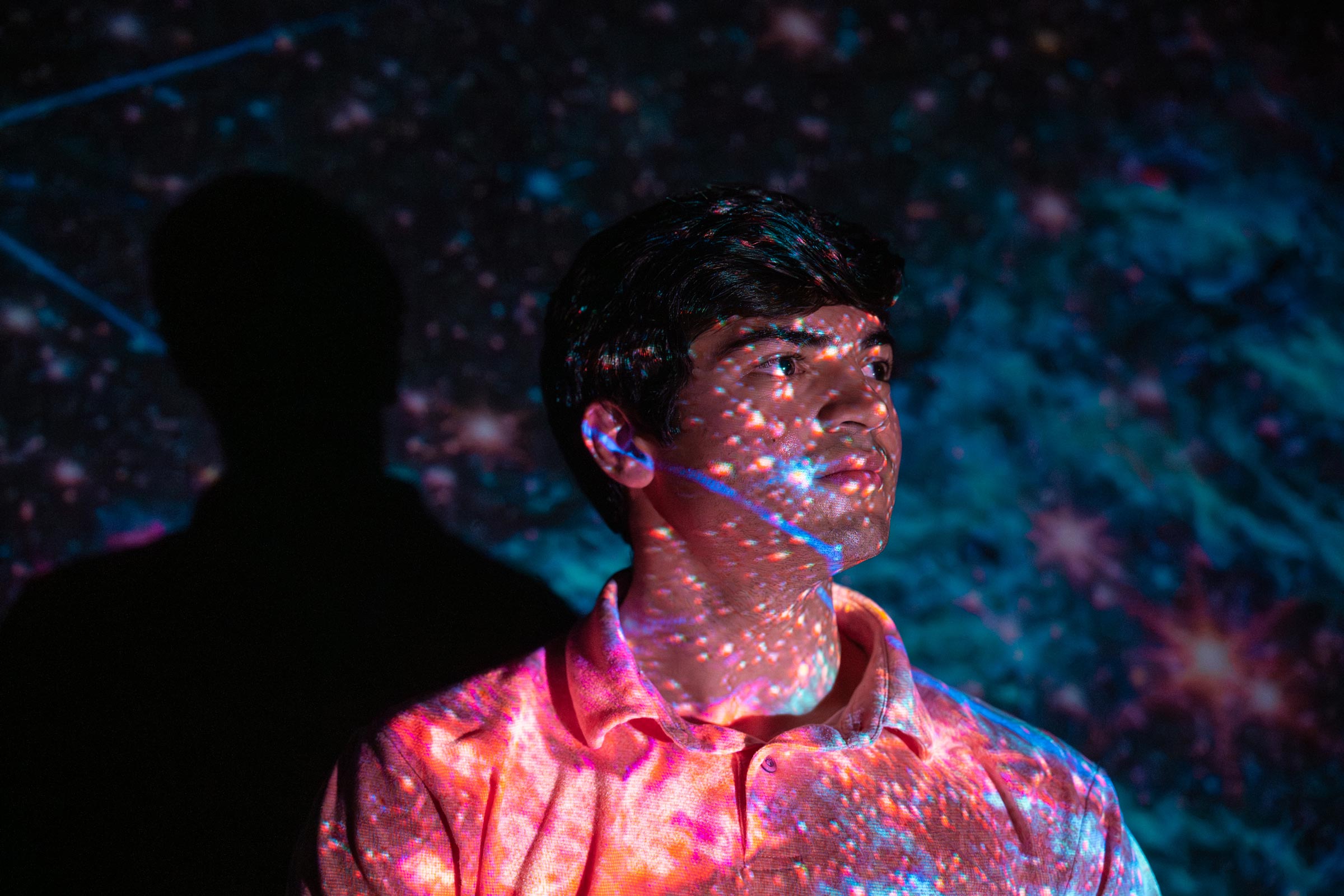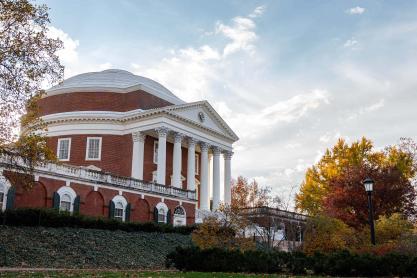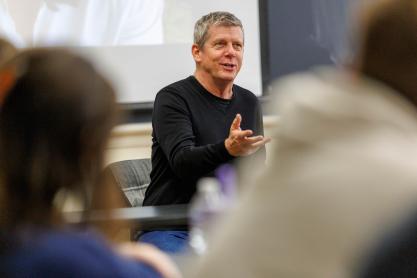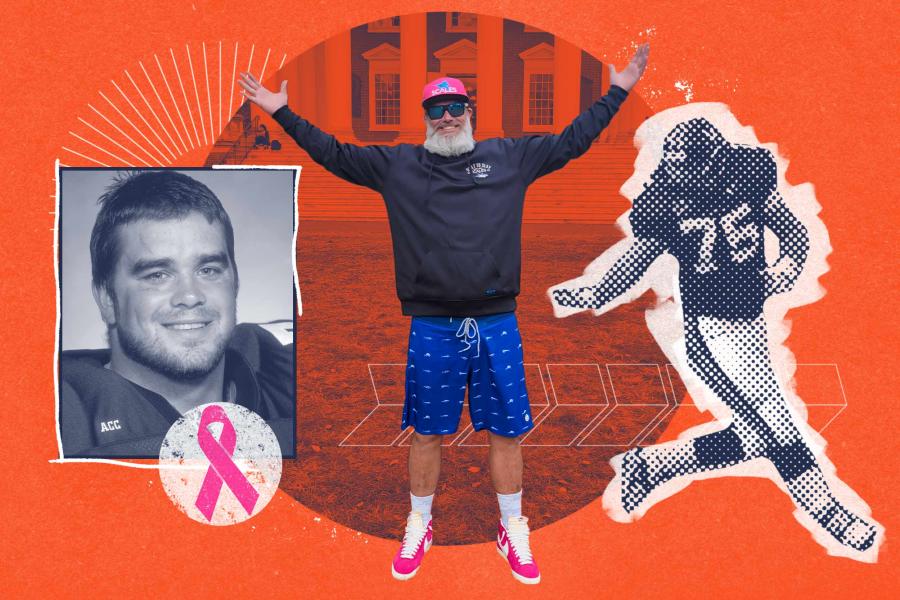For Samuel Thomas Crowe, understanding what the universe has been may provide clues as to what it will be.
The Rhodes Trust announced Saturday that Crowe, a fourth-year student from Chesapeake, is the 57th Rhodes Scholar in the history of the University of Virginia, the top Rhodes-producing public university in the United States. The merit-based awards are fully funded and cover full-time, postgraduate study for two or more years at the University of Oxford in the United Kingdom. Crowe, who studies astronomy-physics in the Distinguished Majors Program and history, will pursue a doctorate in astrophysics.
“I aim to explore the formation of the most massive stars, over eight times the mass of our sun, in local analogs to the distant, young universe,” Crowe said. “These are regions, like the center of our Milky Way and the diffuse dwarf galaxies in our local group, where conditions are more akin to the early universe, when star formation was occurring in a radically different environment than we typically observe in the immediate neighborhood of our sun.”
Jonathan Tan, a research professor in UVA’s Department of Astronomy, noted that Crowe, who is also a Goldwater Scholar, has led pioneering research using the James Webb Space Telescope.
“Sam was the first, and perhaps is still the only, undergraduate student to be the principal investigator on a JWST proposal,” Tan said. “Sam then led the team, including a NASA press release that gained worldwide attention and a series of research papers. The first was accepted for publication in the last few months to appear in the Astrophysical Journal.”
Tan said Crowe has a positive, can-do attitude and is a leader among other students, and his simultaneous study of astrophysics and history gives him a broader perspective on the human endeavor.
“We are engaged in a great journey of discovery and Sam is fast becoming one of the leaders of this exploration,” Tan said.
While exploring the roots of the universe, Crowe also explores the roots of Western civilization, studying ancient Roman history.
“He has that most important quality, historical imagination: he can see questions that need to be asked that haven’t been, even in a field as old as mine,” Elizabeth Meyer, the T. Cary Johnson Jr. Professor of History, said. “Part of this is how his mind works. Astrophysics and ancient history demand some of the same talents; both fields have a lot of unknowns.”
Ted Lendon, the William W. Corcoran Professor of History, said pursuing astrophysics and history are not the same thought process.
“They require completely different kinds of thinking, and the ability to do both of them at the very highest level, as Sam does, must be almost unique in the world,” Lendon said. “Ancient history is all about recollection of detail and putting things in deeply understood context, it’s like looking for quarters in an overstuffed couch; astrophysics requires a searing, cutting, original intelligence – that of a flaming sword. Only Sam has both.”
In addition to his studies, Crowe is also fluent in Spanish, has backpacked across 21 countries spanning five continents, and enjoys bodybuilding, high-altitude hiking, camping and reading. He has previously served as president of the Astronomy Club at UVA, and currently serves as the vice president of the Forestry Club at UVA, a service organization for park maintenance. He is also involved in the Culture of Respect Educators, a sexual assault prevention/peer education organization; the UVA Occultation Group, an undergraduate astronomy research group; and the Raven Society.










